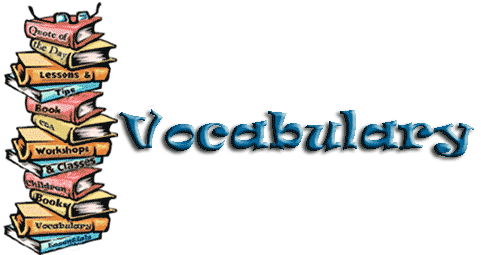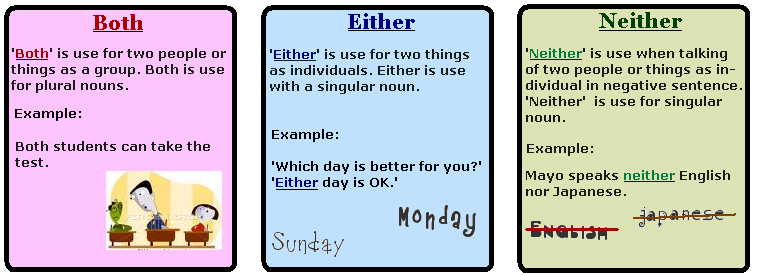General English
Improve your vocabulary – Global Obesity
Global obesity on the rise

More fat, more sugar, more salt, less exercise – more and more people around the world are suffering the consequences. Since 1980, the WHO's report reveals levels of obesity have doubled in every region of the world. Half a billion people, or 12 per cent of the global population, are now considered obese. One in three adults suffer from high blood pressure – a condition that causes half of all deaths from stroke and heart disease. And blood sugar levels are rising too – 10 per cent of the world's population is diabetic.
Improve your vocabulary – Titanic 100 years on

Titanic 100 years on
A cruise ship has retraced the Titanic's route across the North Atlantic exactly 100 years after the liner sank there. The passengers and crew held a remembrance ceremony at the spot where 1500 people lost their lives a century ago.
Improve your vocabulary – Euro 2012

Hãy cùng tăng cường vốn tiếng Anh cũng như kiến thức với SET Program!
'Stay away' from Euro 2012 claim
Poland and Ukraine won the bid to host Euro 2012 over five years ago. But with the tournament now just days away, questions are being raised about both player and fan safety. Footage of matches in both host nations in recent months shows Nazi salutes from the terraces, black players being taunted with monkey chants and in Ukraine, a vicious assault on a group of Asian students. The attack happened in Kharkiv, Ukraine's second city and a Euro 2012 host. While we filmed a series of scuffles between rival fans, suddenly the hooligans spot a new target - a small group of Asian students there to support the home team. We showed former England captain Sol Campbell our footage of the group being set upon.
10 Cool Facts About Olfaction

Vocabulary: Olfaction: the sense of smell Arousal: to awake, stir up, excite Immune: not affected by a given influence
We all have a sense of smell, and we all use it constantly, whether we realize it or not. Scents and smell are two of the most important yet often overlooked elements of everyday experience. Want to learn a few truly amazing facts about the things your nose knows? Then just keep reading.
1. Everyone has a unique "smellprint": No two people smell things the same way because each of us has scent blind spots, meaning specific odors we can't pick up on. So that room spray that smells like cupcakes to you and like creamed corn to your friend? You're both right.
2. You really can smell fear: You can also smell happiness and sexual arousal, as long as the person you're smelling is a close romantic partner.
3. Women generally have stronger senses of smell than men: So it's not surprising that you know the milk's gone bad long before your guy roommate does.
4. Good smells make you happier: Smelling a fragrance you perceive as pleasant has a profoundly positive effect on your mood. So if you love vanilla, keeping a little scented oil on your desk can help lift you when you're down. The same goes for citrus, jasmine, or any other scent that makes you feel contented.
5. There are fewer scents than you think: Some researchers hypothesize that there are only seven primary odors: musky, putrid, pungent, camphoraceous (like mothballs), ethereal (like dry cleaning fluid), floral, and minty.
6. Pregnant women's weird food cravings may be because of their senses of smell: Because your nose is hypersensitive when you're enceinte, you develop an abnormal sense of taste, leading to bizarre cravings like pickles and ice cream.
7. You actually smell with your brain: Not your nose, as you might assume.
8. Scents can cue memories: Most of your scent memories, however, come from the first decade of your life, unlike visual or other sensorial memory types.
9. Men can smell when women are ovulating: Both sexes can smell whether other people have major histocompatability complexes (MHCs) different from their own. This is interesting because mating with someone whose MHC is not too like your own creates offspring with hardier immune systems.
10. Humans have 350 functional olfactory receptor genes: Mice have 1,300.
What are your favorite scents and smells?
(source: Bellasugar)
Mười từ tiếng Anh dài nhất thế giới
Tiếng Anh đã trở thành ngôn ngữ quốc tế, ngôn ngữ xóa nhòa mọi khoảng cách. Có những trường hợp đặc biệt trong Tiếng Anh mà mỗi từ của nó có tới hàng ngàn chữ!
Những từ này khiến chúng ta phát âm rất khó, không chỉ đối với những người học Tiếng Anh mà còn đối với cả những người bản xứ nữa.

Chúng ta hãy cùng đếm ngược từ những từ “ngắn nhất” trong số 10 từ được Topten tổng hợp:
10. Honorificabilitudinitatibus
Từ này có 27 ký tự, xuất hiện trong tác phẩm “Love's Labour's Lost” của Shakespeare, với nghĩa là “vinh quang”. Nó là một trong những lâu nhất trong ngôn ngữ Tiếng Anh mà cứ một phụ âm lại xen lẽ với một nguyên âm.
9. Antidisestablishmentarianism
Từ này gồm 28 ký tự, có nghĩa là “sự phản đối việc tách nhà thờ ra khỏi nhà nước” theo giải thích của Dictionary.com. Thủ tướng Anh William Ewart Gladstone (1809- 1898) đã từng trích dẫn từ này trong một bài phát biểu của mình.
8. Floccinaucihihilipilification
Từ này gồm 30 ký tự, có nghĩa là “hành động hay thói quen từ chối giá trị của một số thứ nhất định”
7. Pseudopseudohypoparathyroidism
Từ này gồm 30 ký tự này là một loại bệnh do rối loạn gien di truyền, nguyên nhân gây ra bởi sự thiếu hụt canxi.
6. Supercalifragilisticexpialidocious
Từ này gồm 34 ký tự, được nhắc đến trong vở nhạc kịch Mary Poppins bởi nhà soạn nhạc Richard và Robert Sherman. Robert B. Sherman, tác giả ca khúc Supercalifragilisticexpialidocious trong phim Mary Poppins (1964) và nhiều nhạc phẩm kinh điển trong phim hoạt hình Disney.Từ này mang nghĩa là “tốt” hoặc nó có thể thay thế cho mọi từ khác nếu bạn quên từ mình định nói, thì người khác vẫn sẽ hiểu bạn định nói gì.
5. Pneumonoultramicroscopicsilicovolcanoconiosis
Từ này gồm 45 ký tự, xuất hiện trong phiên bản thứ 8 của từ điển Webster, có nghĩa là “bệnh ho dị ứng do hít phải nhiều bụi”
4. Aequeosalinocalcalinoceraceoaluminosocupreovitriolic
Từ này gồm 52 ký tự. Tiến sĩ Edward Strother đã sử dụng nó để mô tả vùng biển Bath của Anh.
3. Lopadotemachoselachogaleokranioleipsanodrimhypotrimmatosilphioparaomelito-katakechymenokichlepikossyphophattoperisteralektryonoptekephalliokigklopeleiolagoio-siraiobaphetraganopterygon
Từ tiếng Anh gồm 182 ký tự này có xuất xứ từ tiếng Hy Lạp, trong vở hài kịch “Ecclesiazusae” của tác giả Aristophanes (448- 385) người Hy Lạp. Từ này mang nghĩa là các loại thức ăn nhiều gia vị chế biến từ rau và thịt bò.
2. Từ dài "kinh khủng" dưới đây có tổng cộng 1913 ký tự: Methionylglutaminylarginyltyrosylglutamylserylleucylphenyl-
alanylalanylglutaminylleucyllysylglutamylarginyllysylglutamyl-
glycylalanylphenylalanylvalylprolylphenylalanylvalylthreonyl-
leucylglycylaspartylprolylglycylisoleucylglutamylglutaminyl-
serylleucyllysylisoleucylaspartylthreonylleucylisoleucylglutamy-
lalanylglycylalanylaspartylalanylleucylglutamylleucylglycylisoleucyl-
prolylphenylalanylserylaspartylprolylleucylalanylaspartylglycylproly-
lthreonylisoleucylglutaminylaspfraginylalanylthreonylleucylarginy-
lalanylphenylalanylalanylalanylglycylvalylthreonylprolylalanyl-
glutaminylcysteinylphenylalanylglutamylmethionylleucylalany-
lleucylisoleucylarginylglutaminyllysylhistidylprolylthreonylisoleucyl-
prolylisoleucylglycylleucylleucylmethionyltyrosylalanylasparaginy-
lleucylvalylphenylalanylasparaginyllysylglycylisoleucylaspartyl-glutamylphenylalanyltyrosylalanylglutaminylcysteinylglutamylly-sylvalylglycylvalylaspartylserylvalylleucylvalylalanylaspartylvalyl-prolylvalylglutaminylglutamylserylalanylprolylphenylalanylarginyl-glutaminylalanylalanylleucylarginylhistidylasparaginylvalylalanyl-prolylisoleucylphenylalanylisoleucylcysteinylprolylprolylaspartylalanyl-aspartylaspartylaspartylleucylleucylarginylglutaminylisoleucylalanyl-seryltyrosylglycylarginylglycyltyrosylthreonyltyrosylleucylleucylseryl-arginylalanylglycylvalylthreonylglycylalanylglutamylasparaginyl-arginylalanylalanylleucylprolylleucylasparaginylhistidylleucylvalyl-alanyllysylleucyllysylglutamyltyrosylasparaginylalanylalanylprolyl-prolylleucylglutaminylglycylphenylalanylglycylisoleucylserylalanyl-prolylaspartylglutaminylvalyllysylalanylalanylisoleucylaspartylalanyl-glycylalanylalanylglycylalanylisoleucylserylglycylserylalanylisoleucyl-valyllysylisoleucylisoleucylglutamylglutaminylhistidylasparaginy-lisoleucylglutamylprolylglutamyllysylmethionylleucylalanylalanyl-leucyllysylvalylphenylalanylvalylglutaminylprolylmethionyllysylalanyl-alanylthreonylarginylserine
Những ký tự liên tiếp dài loằng ngoằng trên là tên hoá học của một chất chứa 267 loại amino axít enzyme
1. Titin’s Chemical Name
Từ này gồm 189.819 kí tự, và chúng ta khó mà có thể viết hết chúng ra được. Nếu viết hết ra thì nó trông giống như một cuốn tiểu thuyết ngắn. Nó là tên nguyên tố hóa học Titin.
(theo ione)
Do you say “A” MBA or “An” MBA?
A lot of people learned the rule that you put a before words that start with consonants and an before words that start with vowels, but it's actually a bit more complicated than that. For example, here's Matthew with a question:
I've been wondering if it is actually a hour or an hour. An hour sounds more correct, but a hour reads more correct. I'm just curious on what it should be.

The rule is that you use a before words that start with a consonant sound and an before words that start with a vowel sound.
Should You Use a or an?
So to answer Matt's question, an hour is correct, because hour starts with a vowel sound. People seem to ask most often about words that start with the letters h and u because sometimes these words start with vowel sounds and sometimes they start with consonant sounds. For example, it is a historic monument because historic starts with an h sound, but it is an honorable fellow because honorable starts with an o sound. Similarly, it is a Utopian idea, but an unfair world.
The letters o and m can be tricky too. Usually you put an before words that start with o, but sometimes you use a. For example, you would use a if you were to say, “She has a one-track mind,” because one-track starts with a w sound. Similarly, “She has an MBA, but chooses to work as a missionary.”
The rule is that you use a before words that start with a consonant sound and an before words that start with a vowel sound.
Other letters can also be pronounced either way. Just remember it is the sound that governs whether you use a or an, not the actual first letter of the word.
One complication is when words are pronounced differently in British and American English. For example, the word for a certain kind of plant is pronounced “erb” in American English and “herb” in British English. So the proper form in America is an erb, and the proper form in Britain is a herb. In the rare cases where this is a problem, use the form that will be expected in your country or by the majority of your readers.
Definite and Indefinite Articles
A and an are called indefinite articles. The is called a definite article. The difference is that a and an don't say anything special about the words that follow. For example, think about the sentence, “I need a horse.” You'll take any horse—just a horse will do. But if you say, “I need the horse,” then you want a specific horse. That's why the is called a definite article—you want something definite. At least that's how I remember the names.
(grammar)
Both – Either – Neither
Here are some rules to remember when using BOTH, NEITHER or EITHER.

Both = this AND that
Either = this OR that
Neither = NOT this and NOT that.
Both is used with 'and'
e.g.: "Emma and Megan both went to the party."
We don't usually use this with a negative sentence, but use neither instead.
e.g.: "Both of us don't swim regularly." WRONG.
"Neither of us swim regularly." MUCH BETTER!
Either is used with 'or'
e.g. : "Do you want either chocolate or crisps?"
We often use neither with 'nor', although this is quite formal.
e.g. : "Neither Caroline nor Marguerite worked for EC during the world cup."
Be careful not to use neither with another negative
e.g. : "I don’t want neither chocolate nor crisps." WRONG. We cannot have a double negative!
(from English channel, ECE)

 Hệ thống giáo dục Úc
Hệ thống giáo dục Úc Hệ thống giáo dục Canada
Hệ thống giáo dục Canada Hệ thống giáo dục Mỹ
Hệ thống giáo dục Mỹ Hệ thống giáo dục Singapore.
Hệ thống giáo dục Singapore. Hệ thống giáo dục Anh
Hệ thống giáo dục Anh